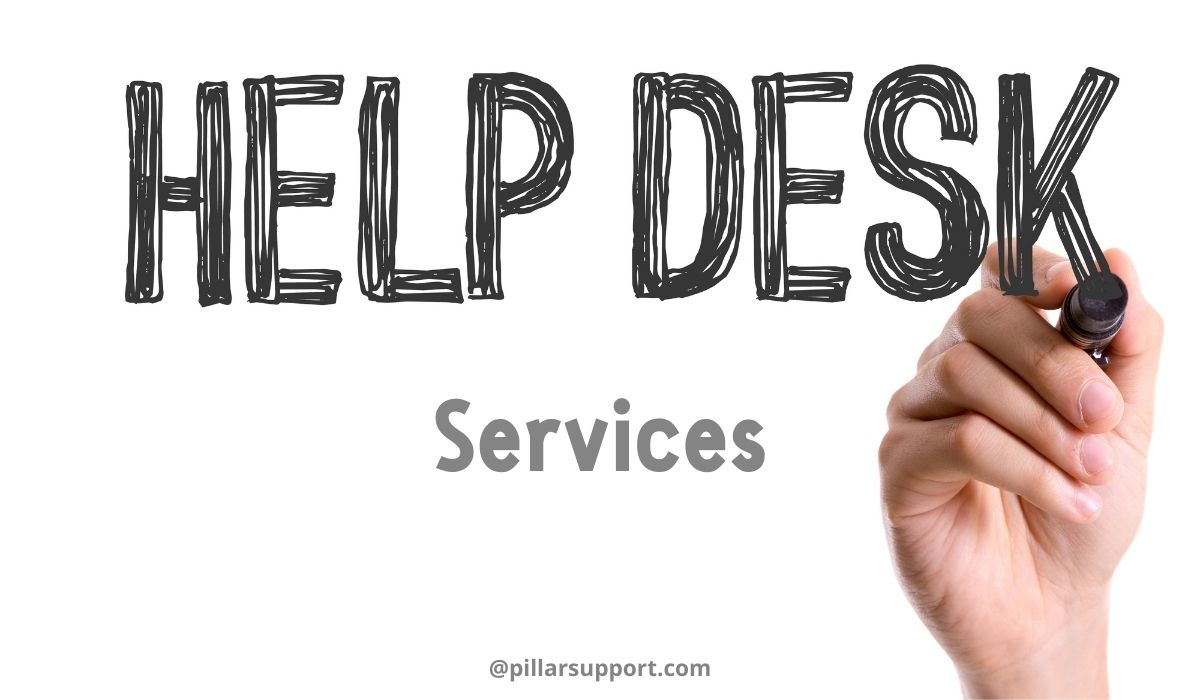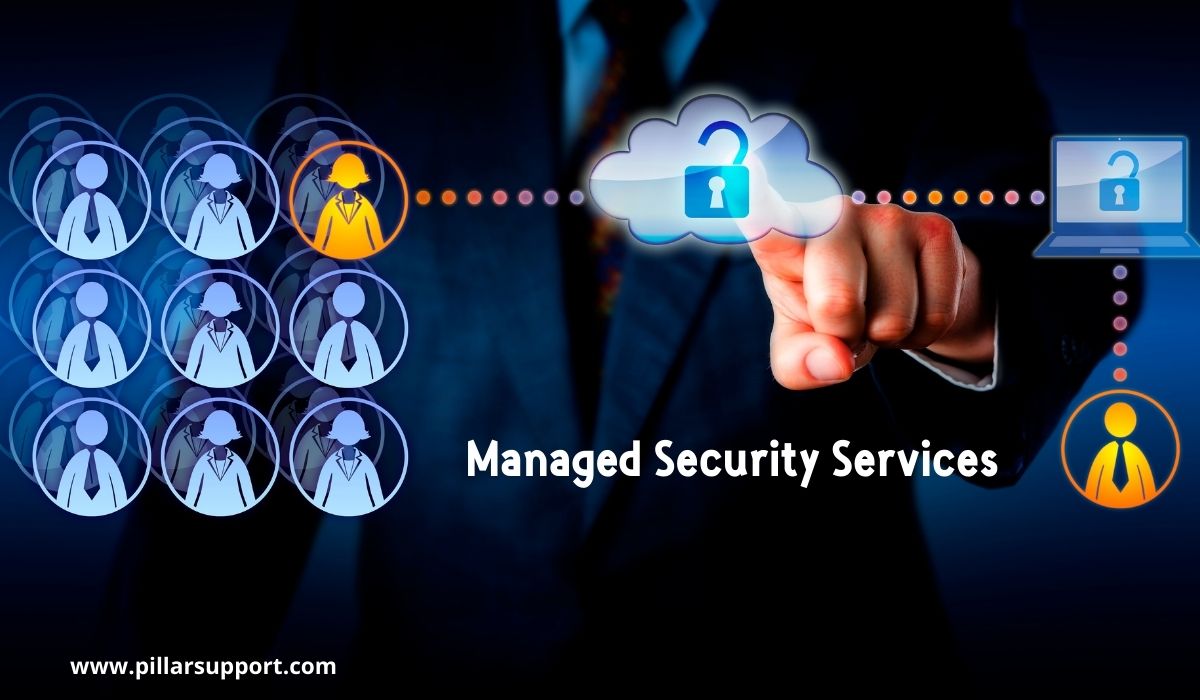Elevating Your Website: Strategies to Improve User Experience
In the digital age, having a high-performing website is essential for businesses looking to thrive and succeed online. There’s a repeated question “How to improve my website?” If you’re looking to improve your website and enhance its functionality, strategic IT support can play a crucial role. With the expertise of IT professionals, you can optimize your website and provide a seamless user experience that drives engagement and conversions. Let’s explore how strategic IT support can help improve your website and elevate your online presence.
Table of Contents
Website Audit: Identifying IT Support Needs
A website audit is a crucial step in identifying the IT support needs of your website. By conducting a comprehensive analysis, IT professionals can assess various aspects of your website to ensure optimal performance, security, and functionality. Let’s explore some key areas that are assessed during a website audit to determine the IT support needs:
1. Analyzing Server Performance and Stability
IT support professionals evaluate the server infrastructure to assess its performance and stability. This includes analyzing server configurations, load balancing mechanisms, and caching strategies. By optimizing server settings, IT support can enhance the website’s speed, responsiveness, and overall performance.
2. Assessing Network Infrastructure for Optimal Website Delivery
The network infrastructure plays a crucial role in delivering website content to users. IT support assesses the network setup, including routers, switches, and internet connectivity, to ensure efficient website delivery. They identify any network congestion or latency issues that may affect the website’s performance. By optimizing network configurations and implementing content delivery networks (CDNs), IT support can improve the website’s loading speed and ensure a smooth user experience.
3. Evaluating Data Backup and Recovery Systems
Data loss can be catastrophic for a website. IT support evaluates the data backup and recovery systems in place to ensure they are robust and reliable. This includes verifying regular backups, testing the restoration process, and ensuring secure storage of backups. By implementing effective data backup and recovery strategies, IT support minimizes the risk of data loss and ensures business continuity in the event of a disaster.
4. Ensuring Cybersecurity Measures are Robust
Website security is of utmost importance in today’s digital landscape. IT support evaluates the cybersecurity measures implemented to protect the website from threats such as hacking, malware, and data breaches. This includes assessing firewalls, intrusion detection systems, encryption protocols, and access controls. By identifying vulnerabilities or weaknesses, IT support can implement necessary security enhancements to safeguard the website and its data.
5. Analyzing Front-Facing Functions
Front-facing functions, such as contact forms, calendar scheduling, live chat, and chatbots, are essential for user engagement. IT support analyzes these functions to ensure they are functioning properly, user-friendly, and optimized for performance. By identifying any issues or bottlenecks, IT support can implement improvements that enhance user engagement and satisfaction.
6. Analyzing Backend Functionality through Plugins
The backend functionality of a website, often managed through plugins, is crucial for its smooth operation. IT support assesses the backend functionality to ensure compatibility, performance, and security. They analyze the plugins used, their configurations, and their impact on website performance. By optimizing backend functionality, IT support can improve website speed, stability, and overall performance.
A website audit that includes analyzing server performance, network infrastructure, data backup and recovery systems, cybersecurity measures, front-facing functions, and backend functionality is essential for identifying the IT support needs of your website. By addressing any issues or weaknesses, IT support can optimize your website’s performance, security, and user experience, ensuring it operates at its best.
Optimizing IT Infrastructure for Website Efficiency
1. Streamlining Server Configuration and Resources
IT support professionals can analyze and optimize server configurations to ensure efficient resource allocation. This includes optimizing server settings, adjusting memory and CPU allocations, and fine-tuning caching mechanisms. By streamlining server configuration, IT support can improve website performance and responsiveness.
2. Enhancing Network Speed and Bandwidth
IT support can assess the network infrastructure and identify opportunities to enhance network speed and bandwidth. This may involve upgrading network equipment, optimizing network configurations, or implementing content delivery networks (CDNs) to improve website delivery speed. By enhancing network speed and bandwidth, IT support can ensure a smooth and fast user experience.
3. Implementing Redundancy and Failover Solutions for High Availability
To minimize downtime and ensure high availability, IT support can implement redundancy and failover solutions. This may include setting up redundant servers, load balancing mechanisms, and failover systems. By implementing these solutions, IT support can ensure that your website remains accessible even in the event of hardware or network failures.
4. Upgrading Hardware and Software for Performance Gains
Outdated hardware and software can significantly impact website performance. IT support can assess your current hardware and software infrastructure and recommend upgrades to improve performance. This may involve upgrading servers, storage systems, or content management systems (CMS). By upgrading hardware and software, IT support can unlock performance gains and enhance website efficiency.
5. Managing Website Updates, Upgrades, and Plugins
Regular updates and upgrades are essential for maintaining website security and performance. IT support can manage the process of updating your website’s CMS, plugins, and other software components. They can also assess the compatibility and performance impact of new plugins before implementation. By effectively managing website updates, upgrades, and plugins, IT support ensures that your website remains secure and optimized.
Optimizing IT infrastructure is crucial for improving website efficiency. By streamlining server configuration, enhancing network speed, implementing redundancy solutions, upgrading hardware and software, and effectively managing website updates and plugins, IT support can enhance website performance, security, and availability.
Security Measures for Data Protection
Implementing Firewalls, Intrusion Detection, and Prevention Systems
Firewalls act as a barrier between your internal network and external threats. By implementing firewalls, intrusion detection systems (IDS), and intrusion prevention systems (IPS), you can monitor and control network traffic, detect and block unauthorized access attempts, and prevent malicious activities. These security measures help safeguard your data from external threats.
Conducting Regular Security Audits and Vulnerability Assessments
Regular security audits and vulnerability assessments are essential for identifying weaknesses and vulnerabilities in your systems. By conducting these assessments, you can proactively identify and address potential security risks before they are exploited by attackers. This includes scanning for vulnerabilities, testing for weak configurations, and evaluating the effectiveness of your security controls.
Establishing Access Control and Authentication Mechanisms
Access control and authentication mechanisms play a crucial role in data protection. By implementing strong access control policies, you can ensure that only authorized individuals have access to sensitive data. This includes using strong passwords, implementing multi-factor authentication, and restricting access based on user roles and permissions. These measures help prevent unauthorized access and protect your data from being compromised.
Ensuring Data Encryption and Secure Transmissions
Data encryption is a critical security measure for protecting sensitive information. By encrypting data at rest and in transit, you can ensure that even if it is intercepted, it remains unreadable and unusable to unauthorized individuals. Additionally, using secure protocols and implementing secure transmission methods, such as HTTPS, helps protect data during communication between systems.
Implementing firewalls, intrusion detection and prevention systems, conducting regular security audits and vulnerability assessments, establishing access control and authentication mechanisms, and ensuring data encryption and secure transmissions are essential security measures for protecting your data. By implementing these measures, you can enhance the security of your systems and safeguard your data from unauthorized access and potential breaches.
Monitoring and Performance Tuning
Implementing Continuous Monitoring for Anomalies and Downtime Prevention
Continuous monitoring is crucial for identifying anomalies and potential performance issues in real-time. By implementing monitoring tools and systems, IT support can proactively detect and address any abnormalities or potential downtime threats. This includes monitoring server health, network traffic, application performance, and other relevant metrics. By promptly identifying and resolving issues, downtime can be minimized, and optimal performance can be maintained.
Fine-Tuning Server and Network Parameters for Optimal Performance
IT support professionals can fine-tune server and network parameters to optimize performance. This involves adjusting settings such as memory allocation, CPU utilization, disk I/O, and network configurations. By optimizing these parameters, IT support can ensure that resources are allocated efficiently, bottlenecks are minimized, and the overall performance of the system is enhanced.
Utilizing Performance Metrics for Proactive Optimization
Performance metrics provide valuable insights into the health and efficiency of the IT infrastructure. IT support can leverage these metrics to identify areas for improvement and proactively optimize performance. This includes analyzing metrics such as response time, throughput, error rates, and resource utilization. By monitoring and analyzing these metrics, IT support can identify performance bottlenecks, optimize system configurations, and implement necessary improvements to enhance overall performance.
Implementing continuous monitoring, fine-tuning server and network parameters, and utilizing performance metrics are essential for optimizing performance and ensuring the smooth operation of IT systems. By proactively monitoring and optimizing performance, IT support can prevent downtime, improve efficiency, and provide a seamless user experience.
Backup and Disaster Recovery Strategies
1. Setting up Automated Backup Systems for Data Protection
Automated backup systems are crucial for ensuring data protection. IT support can set up regular and automated backups of critical data to minimize the risk of data loss. This includes implementing backup solutions that capture and store data at regular intervals, ensuring that … backups are performed consistently and reliably. By automating the backup process, IT support can ensure that data is protected and can be easily restored in the event of data loss or system failure.
2. Establishing Disaster Recovery Plans for Business Continuity
Disaster recovery plans are essential for maintaining business continuity in the face of unforeseen events. IT support can work with the organization to develop comprehensive disaster recovery plans that outline the steps to be taken in the event of a … disaster recovery plans regularly to ensure they remain up-to-date and effective in addressing potential risks and challenges.
3. Testing Backup and Recovery Procedures for Effectiveness
Regular testing of backup and recovery procedures is crucial to ensure their effectiveness. IT support can conduct periodic tests to verify the integrity of backups and the ability to restore data successfully. This includes simulating various disaster scenarios and … recovering data from backups. By testing backup and recovery procedures, IT support can identify any potential issues or gaps in the process and make necessary adjustments to ensure a smooth and efficient recovery in the event of a disaster.
Setting up automated backup systems, establishing disaster recovery plans, and testing backup and recovery procedures are essential components of a comprehensive data protection and business continuity strategy. By implementing these strategies, IT support can ensure that critical data is protected, and the organization can recover quickly and effectively in the event of a disaster or data loss.
Update, Upgrade, and Plugin Management
Managing CMS and Plugin Updates for Security and Performance
Regular updates of your content management system (CMS) and plugins are crucial for maintaining website security and performance. IT support can manage the process of updating your CMS and plugins, ensuring that the latest security patches and performance enhancements are applied. By staying up-to-date with updates, you can mitigate security vulnerabilities and ensure optimal website performance.
Strategically Upgrading Website Components for Efficiency Gains
IT support can strategically assess and upgrade various website components to gain efficiency. This includes evaluating the website’s infrastructure, server configurations, and software components to identify areas for improvement. By upgrading components such as servers, databases, caching systems, or content delivery networks (CDNs), IT support can enhance website speed, scalability, and overall performance.
Effective management of CMS and plugin updates, as well as strategic upgrades of website components, are essential for maintaining website security, performance, and efficiency. By staying up-to-date with updates and strategically upgrading components, IT support can ensure that your website operates at its best and provides an optimal user experience.
Scalability and Future-Proofing
1. Designing IT Infrastructure with Scalability in Mind
IT support can design and implement an IT infrastructure that is scalable and can accommodate future growth. This involves considering factors such as server capacity, network bandwidth, storage capacity, and system architecture. By designing the infrastructure with scalability in mind, IT support can ensure that the organization can easily expand its IT resources as needed, without significant disruptions or costly upgrades.
2. Utilizing Cloud Services for Flexible Scaling
Cloud services offer flexible scalability, allowing organizations to easily scale their IT resources up or down based on demand. IT support can leverage cloud services to host applications, store data, and provide computing resources. By utilizing cloud services, organizations can avoid the need for upfront investments in hardware and infrastructure, and instead, pay for resources on a usage basis. This enables them to scale their IT infrastructure quickly and cost-effectively.
3. Adopting Technologies with Long-Term Viability
IT support can help organizations adopt technologies that have long-term viability and are future-proof. This involves staying updated with industry trends, evaluating emerging technologies, and selecting solutions that align with the organization’s long-term goals. By adopting technologies with long-term viability, organizations can avoid the need for frequent technology replacements and ensure that their IT infrastructure remains relevant and effective in the face of evolving business needs.
Designing IT infrastructure with scalability in mind, utilizing cloud services for flexible scaling, and adopting technologies with long-term viability are essential for future-proofing an organization’s IT capabilities. By implementing these strategies, IT support can ensure that the organization’s IT infrastructure can adapt to changing needs, support growth, and remain efficient and effective in the long run.
Collaborative IT Support and Development Teams
Facilitating Effective Communication Between IT and Development Departments
IT support can play a crucial role in facilitating effective communication between the IT and development departments. This involves establishing regular communication channels, such as meetings or collaboration tools, where both teams can discuss project requirements, timelines, and any technical considerations. By promoting open and transparent communication, IT support can ensure that the development team has a clear understanding of the IT requirements and constraints, and the IT team is aware of the development team’s needs and priorities.
Ensuring Seamless Integration of IT Solutions with Web Development Initiatives
IT support can work closely with the development team to ensure seamless integration of IT solutions with web development initiatives. This involves collaborating on the selection and implementation of technologies, frameworks, and tools that align with the development team’s requirements and the organization’s IT infrastructure. By working together, IT support and the development team can ensure that the IT solutions are compatible with the web development initiatives, resulting in a cohesive and efficient website.
Enhancing Cross-Team Collaboration for Optimal Website Functionality
IT support can foster cross-team collaboration between the IT and development departments to achieve optimal website functionality. This involves encouraging knowledge sharing, brainstorming sessions, and joint problem-solving to address technical challenges and optimize website performance. By fostering a collaborative environment, IT support can leverage the expertise of both teams to identify innovative solutions, improve website functionality, and enhance the overall user experience.
Facilitating effective communication between IT and development departments, ensuring seamless integration of IT solutions with web development initiatives, and enhancing cross-team collaboration are essential for achieving optimal website functionality. By working together, IT support and the development team can leverage their respective expertise to deliver a high-performing website that meets the organization’s goals and user expectations.
Why Choose Pillar Support for IT-Driven Website Enhancement
When it comes to IT-driven website enhancement, Pillar Support is the ideal choice. Here’s why you should choose Pillar Support for your website optimization needs:
1. Specialized Expertise in IT-Driven Website Optimization
Pillar Support has a team of experts with specialized knowledge and experience in IT-driven website optimization. Our professionals understand the intricacies of website infrastructure, performance optimization, security, and scalability. With their expertise, they can identify areas for improvement, implement best practices, and optimize your website for optimal performance and user experience.
2. Tailored Solutions for Businesses Requiring Robust IT Support
Pillar Support understands that every business has unique IT requirements. We offer tailored solutions that cater to the specific needs of your business. Whether you need assistance with server configuration, network optimization, cloud integration, or security enhancements, our team will work closely with you to develop a customized plan that aligns with your goals and objectives.
3. Integrating Pillar Support’s IT Expertise into Your Website Infrastructure
By partnering with Pillar Support, you can integrate our IT expertise seamlessly into your website infrastructure. Our team will collaborate with your web development team to ensure that IT solutions are seamlessly integrated into your website architecture. We will work together to optimize performance, enhance security, and implement scalable solutions that align with your business objectives.
Choosing Pillar Support for IT-driven website enhancement means gaining access to specialized expertise, tailored solutions, and seamless integration of IT support into your website infrastructure. With our team of experts by your side, you can optimize your website for optimal performance, security, and scalability, allowing your business to thrive in the digital landscape.
Contact Pillar Support for Help
If you’re looking to reinforce the vital role of IT support in sustaining website performance and want to leverage IT expertise for online success, look no further than Pillar Support. Our IT-driven website enhancement services are designed to elevate your online presence and ensure optimal performance.
Contact us today to explore how our team of experts can help you achieve online success. Let us be your pillar of support in the digital world.
Frequently Asked Questions
How Can I Improve My Existing Website?
Improving an existing website can be done through various strategies. Some key steps include:
1. Conducting a website audit to identify areas for improvement
2. Enhancing website speed and performance
3. Optimizing the website for mobile devices
4. Improving navigation and user experience
5. Updating and refreshing the design
6. Adding new and relevant content
7. Implementing SEO strategies to improve search engine visibility
How Do I Optimize and Improve My Website Design?
To optimize and improve your website design, consider the following:
a. Ensure a clean and intuitive layout
b. Use consistent branding elements
c. Optimize images and multimedia for faster loading times
d. Use clear and concise typography
e. Implement responsive design for mobile devices
f. Incorporate user-friendly navigation
g. Test and optimize the design for different browsers and devices
What Makes a Website More Effective?
Several factors contribute to an effective website, including:
a. Clear and compelling messaging
b. User-friendly navigation and intuitive design
c. Fast loading times
d. Mobile responsiveness
e. High-quality and relevant content
f. Strong call-to-action elements
g. Effective use of visuals and multimedia
h. Search engine optimization (SEO) to improve visibility
i. Regular updates and maintenance
How Can I Improve the Quality of My Website Content?
Improving the quality of your website content can be achieved through the following steps:
1. Conducting thorough research on your target audience and their needs
2. Creating well-written, engaging, and informative content
3. Using a consistent tone and voice throughout the website
4. Incorporating relevant keywords for SEO purposes
5. Ensuring proper formatting and readability
6. Adding visuals and multimedia to enhance the content
7. Regularly updating and refreshing the content to keep it current and relevant



